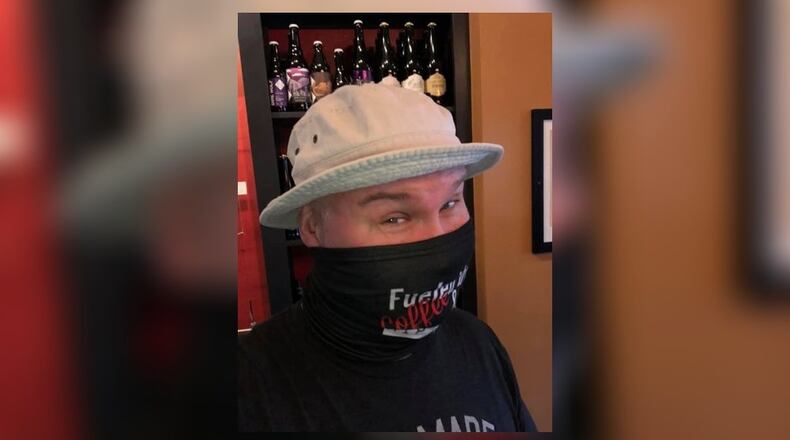Ohio is gradually reopening, but it could be a long time before social connections are anything like previously since social distancing continues to be a recommended tactic to combat the spread of the disease.
Residents need to find ways to remain connected and socially engaged to avoid feeling down and detached, psychologists say.
“Our residents that live alone may have an even more difficult time, and we call upon loved ones, friends, and neighbors to go above and beyond to reach out in alternative ways in order to stay connected to those individuals,” said Erin Ritter, the city of Dayton’s human services manager.
Coronavirus: Complete Coverage by the Dayton Daily News
More than 27,000 Dayton adults live alone, or about 27.5% of the city's adult population, according to an analysis of Census data by Self Financial.
Dayton ranked third in the nation for solo living among U.S. cities with a population of at least 100,000 people, according to the analysis of about 325 U.S. cities.
Dayton only trailed Cleveland (28.5% of adults live alone) and St. Louis, Missouri (28.4%).
Ohio ranked third among U.S. states for the share of adults who live by themselves (16.6% of residents, or nearly 1.5 million Ohioans).
Living alone has dramatically increased across the nation in recent decades, as Americans increasingly delay or forgo marriage and remain single for longer periods, analysts say.
Many people live solo by choice, because they value their independence, time to themselves, personal space or solitude.
COVID-19: Social distancing may affect one’s mental health, experts say
But opportunities for social contact have dramatically decreased since mid-March, when Ohioans were directed to shelter at home as much as possible.
Since then, many businesses, institutions and most forms of entertainment and social activities were closed to slow the spread of the virus.
This meant common sources of social interaction and connection like churches, schools, gyms, libraries and recreation facilities all suspended operations.
People are not designed for this level of isolation, and it’s almost certainly led to increased loneliness and exacerbated depression, anxiety, hopelessness or other negative feelings, said Helen Jones-Kelley, director of Montgomery County Alcohol, Drug & Mental Health Services (ADAMHS).
Some Ohioans have adapted to the lockdown by holding virtual family meals, game nights and social hours, she said.
But others may not have the technology or the know-how to socialize electronically, which means access to meaningful and satisfying relationships has been cut off, Kelley said.
MORE: Dayton to permanently close 2 golf centers
She urges residents to check in on neighbors or other community members they think might be isolated.
She encourages residents to drop off small gifts or offer assistance, like to pick up groceries.
“If you know that you have people in your neighborhood who live alone, it’s a wonderful time to reach out and say, ‘How are you?’ or ‘Do you need anything?’” she said.
Feelings of loneliness combined with anxiety and uncertainty related to COVID-19 and a lack of a support system could result in increased substance use and negative and unhealthy thoughts, said Dawn Cooksey, director of behavioral health services with Goodwill Easterseals Miami Valley.
Many people have lost their jobs in recent weeks, and Cooksey said this can be extremely stressful if people live alone and don’t have someone else who helps pay rent, the mortgage, utilities and other bills.
“People really need to be calling to check in with their friends who are living alone,” Cooksey said.
Residents who are concerned about a loved one who lives alone should reach out regularly to say hello, talk and listen, aid Kierstyn Crawford, clinical coordinator with the Main Street Recovery Center at Goodwill Easterseals Miami Valley.
“Many people have been visiting through windows or mailing letters or care packages,” Crawford said. “Anything that lets someone know they are being thought of helps.”
Everyone’s experience during this crisis is unique and there is no “right way” to get through this trying time, said Ritter.
But she said residents should know they are not alone.
“Do not feel like you need to do this on your own, even if you are physically on your own,” she said. “There are always people that want to offer support, whether it is family, friends, coworkers or one of the numerous non-profit organizations in our community.”
There is a big difference between being alone and being lonely, said Scott Ross, 50, who has lived alone for about eight years in Dayton’s Shroyer Park neighborhood.
Ross said he really enjoys his independence, and during this lockdown he has been writing, gardening, making to-do lists, cleaning, saving money, taking walks and started multiple art projects.
“I’ve had an amazing quarantine, though I feel guilty about saying that sometimes,” he said.
Ross said his friend group has virtual happy hours on Friday evenings. They also drop off porch gifts to each other, like glasses and bottles of wine.
His friends at times have enjoyed porch beers together, though while taking social distancing to the extreme.
Ross said he believes in “semi-adopting” people, which means regularly checking in and making sure they are OK, especially if they live alone not by choice or if they struggle with anxiety, depression or other issues.
Ross said he thinks living alone during this crisis in some respects is easier than living with a partner, because he’s free to do exactly what he wants.
“If I decide today to wake up, lay on the couch all day, binge Netflix and drink beer, I can do that,” he said. “There’s nobody who can tell me no: Everybody who gets a vote is in the house already.”
But, Ross said, he likes to keep busy and he wouldn’t want to waste a whole day on the couch.
About the Author

